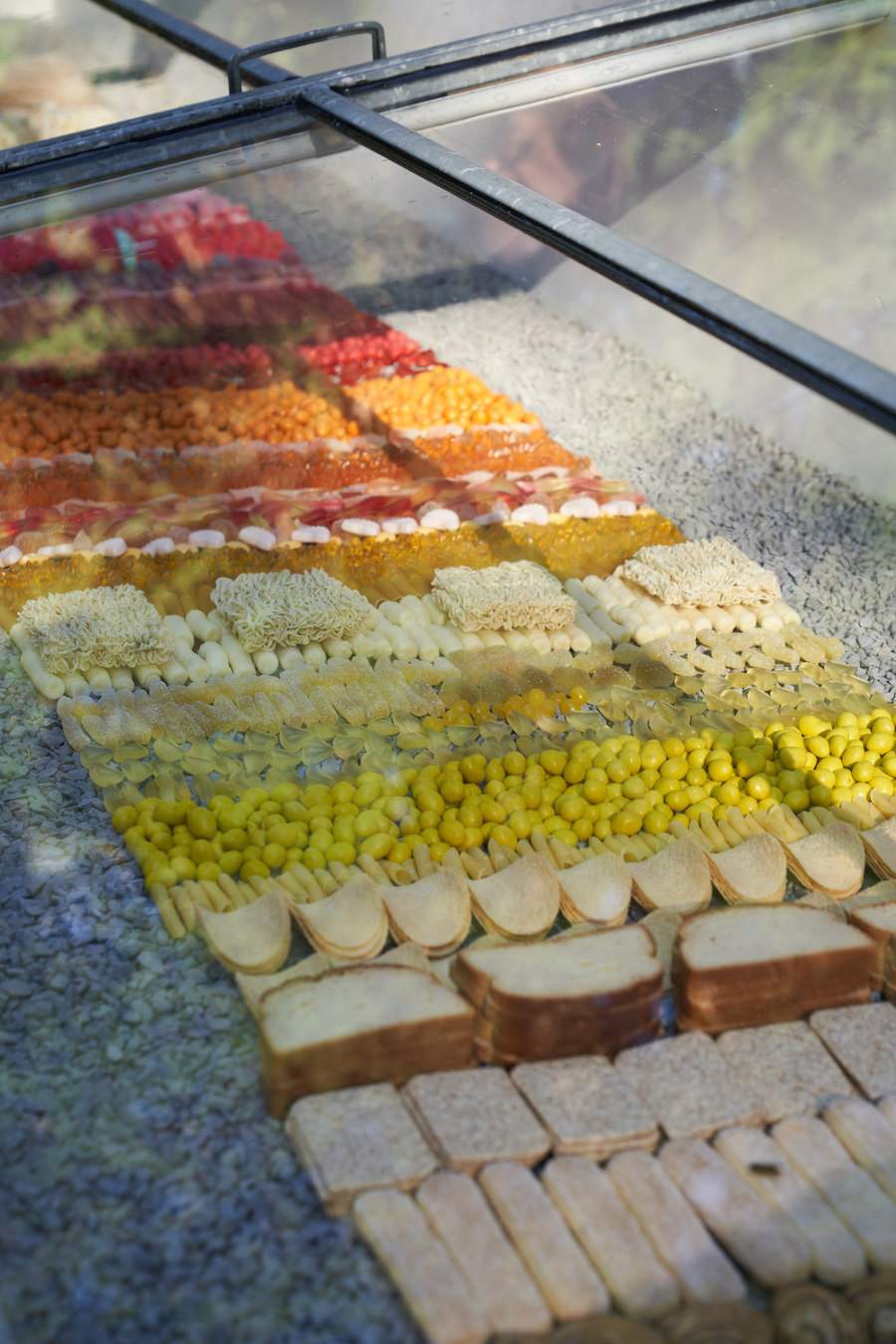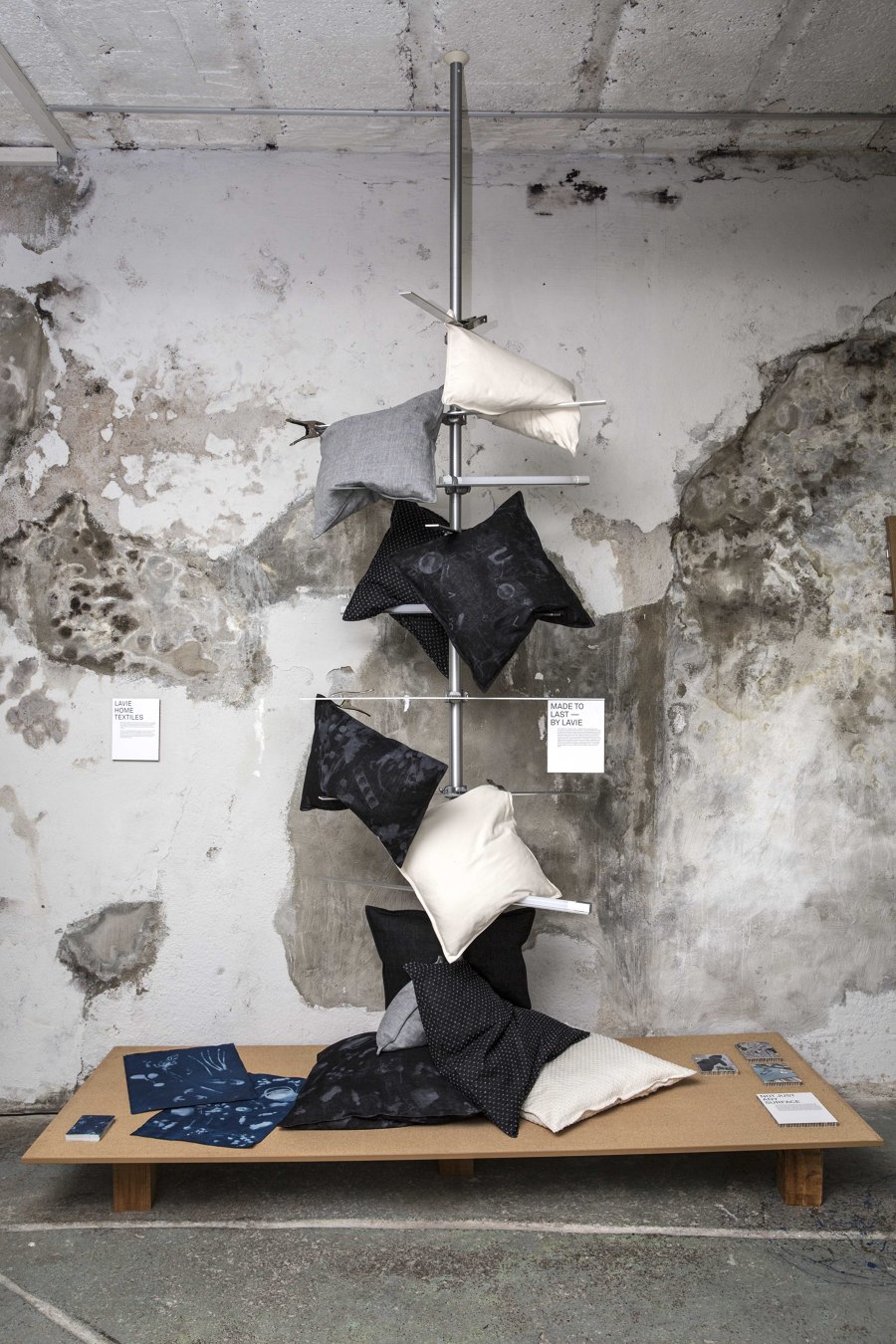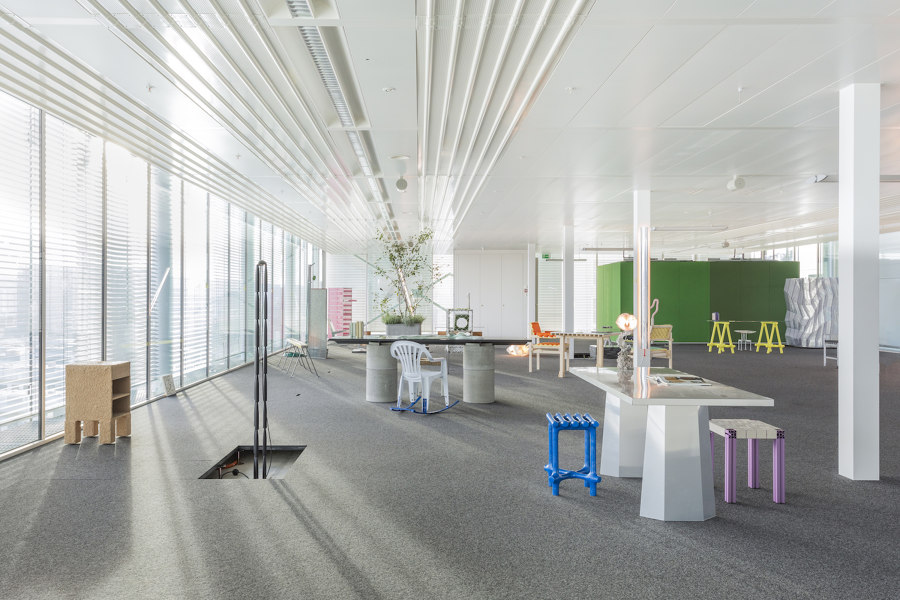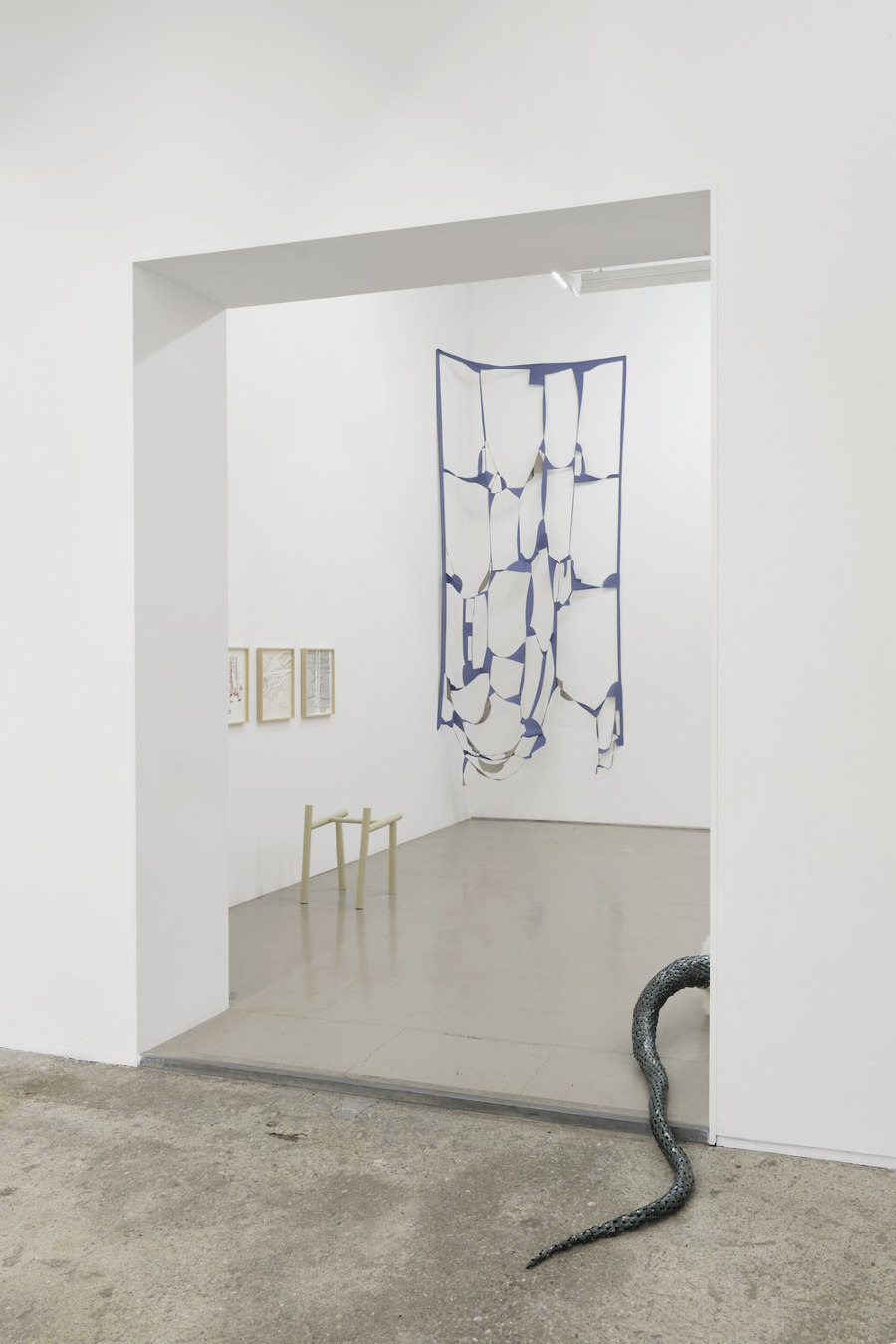Five highlights from Zurich Design Weeks 2023
Texto por Simon Keane-Cowell
Zürich, Suiza
02.11.23
The third edition of Switzerland's largest design event brought together emerging talent and established names for an investigation into circularity, place-making and contemporary design practice.
Zurich Design Weeks once again welcomed visitors at various locations in the Swiss capital - the Museum für Gestaltung served as HQ (above). Installation 'Soft Wall', Marie Schumann and Simon Züger x Christian Fischbacher. Photo: Dominik Meier
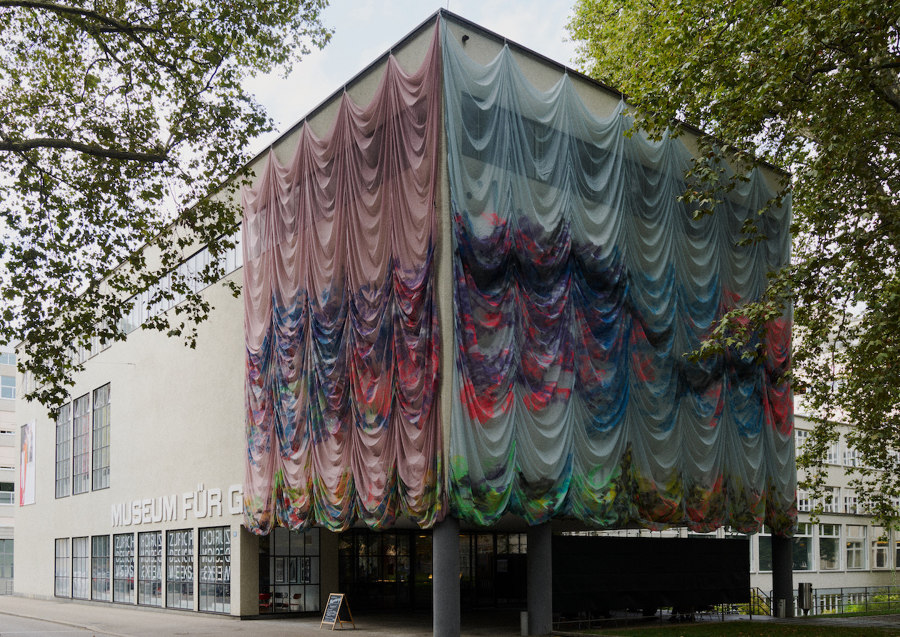
Zurich Design Weeks once again welcomed visitors at various locations in the Swiss capital - the Museum für Gestaltung served as HQ (above). Installation 'Soft Wall', Marie Schumann and Simon Züger x Christian Fischbacher. Photo: Dominik Meier
×As names go, it’s ambitious. Zurich Design Weeks. Just when you thought you’d reached capacity when it comes to international fair visits and other work trips, along comes another design event that’s lobbying for your precious professional time and energy. And this time it’s plural. A mere week? Pah. Try on several for size.
With its third edition recently put to bed, the 20-day affair that is Zurich Design Weeks may be temporally expansive, but it’s certainly not flabby. A deft imbrication of culture and commerce that punches above its weight, it’s a choice edit of Swiss brands, young-designer concept-led installations, exhibitions, panel discussions and student work. It’s also an exercise in place-making (with the ZDW programme playing out at various locations across the city, both inside and outdoors), one that ably demonstrates how contemporary Zurich, and by extension Swiss, contemporary design practice is about more than just clean typography.
– – –
Projects at DBZ included the solar oven 'ELECTRYON' by architects Alias & Comte/Meuwly (bottom) and an installation questioning our relationship with food from artists honey & bunny (top). Photos: Lea Della Zassa
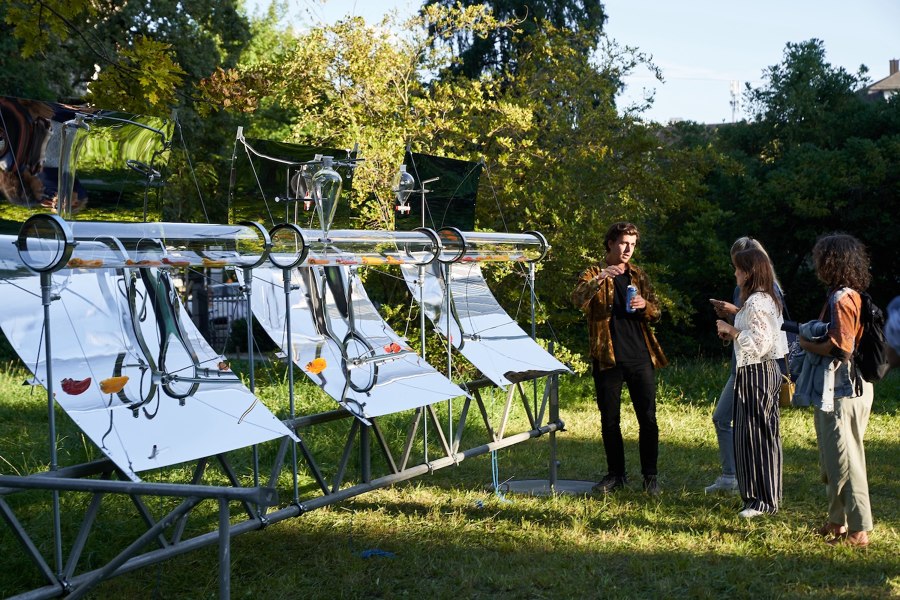
Projects at DBZ included the solar oven 'ELECTRYON' by architects Alias & Comte/Meuwly (bottom) and an installation questioning our relationship with food from artists honey & bunny (top). Photos: Lea Della Zassa
×Design Biennale Zürich
The fourth outing of this outdoor exhibition of ideas-driven, experimental design installations – located in Zurich’s characterful Old Botanical Garden – displayed its clearest direction yet. Its confidence helped perhaps by its new, big-name sponsor, Swiss Re, the Design Biennale Zurich 2023 chose as its subtitle the one-word, dynamic call-to-action SHIFT. The clarion call for change was played out in a raft of contributions from an international array of designers and artists, addressing such urgent themes as climate change, upcycling and food waste.
– – –
In a temporary warehouse space in the heart of Zurich's vibrant Kreis 4, a selection of Swiss circularity pioneers aimed to demonstrate how 'zero waste' products can be realised. Photos: Kairos Studio & Oliver Kummerli
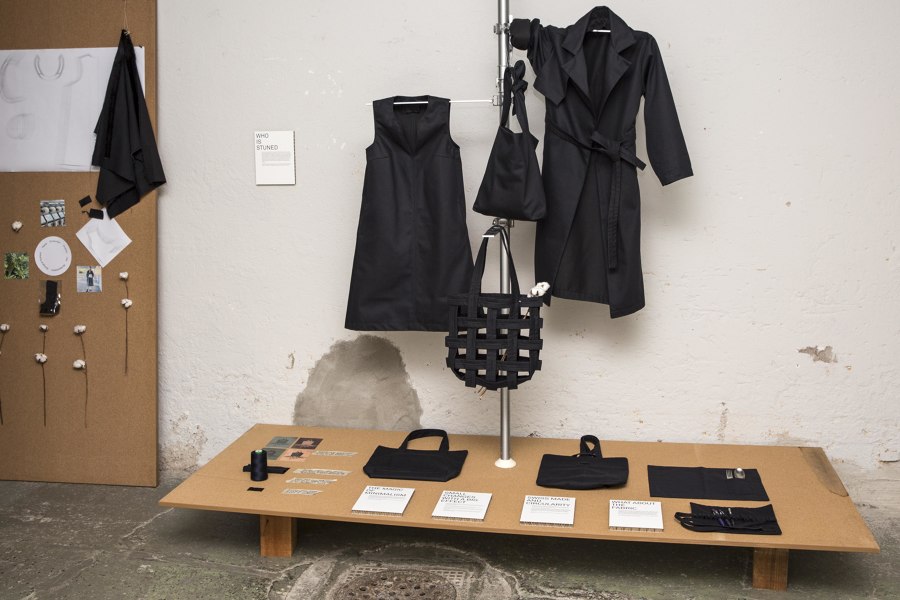
In a temporary warehouse space in the heart of Zurich's vibrant Kreis 4, a selection of Swiss circularity pioneers aimed to demonstrate how 'zero waste' products can be realised. Photos: Kairos Studio & Oliver Kummerli
×Design for Circularity
Amidst the experimental, the conceptual and the speculative offerings that made up a significant part of ZDW – all of which, one might argue, are essential to creating new knowledge and cultivating new forms of practice – was a compelling bundle of content entitled ‘Design for Circularity.’ Taking the form of an exhibition and short series of panel discussions, the initiative – the result of a collaboration between a number of pioneering fashion and lifestyle brands, including Qwstion and Freitag – presented ambitious and innovative approaches to disrupting the linear model of how we treat resources today. In their drive to rethink the design of things and close material loops, while admitting there’s a lot of work still to be done, these companies act as a vital polestar for the design industry at large.
– – –
Repair Revolution!
More than just a nice bit of alliteration, the Repair Revolution! show at Zurich’s Museum für Gestaltung (Design Museum) is more open workshop than exhibition. Yes, we know that if we’re to close the circle in our material economy, we need to reduce the amount we consume and to extend the life of those products we do consume. One key way of doing this is to repair them. But this is predicated on repairability, which, of course, needs to be built into their design. Visitors are encouraged to bring personal items in need of repair into the museum, where professionals get to work on them; at the same time, Repair Revolution! functions as an information exchange on repair places in the city.
– – –
The works on display at 'The Office' ranged from ready-made and playful to technical and minimalist objects and furniture to reveal visions and processes of exploration. Photos: Kairos Studio & Oliver Kummerli
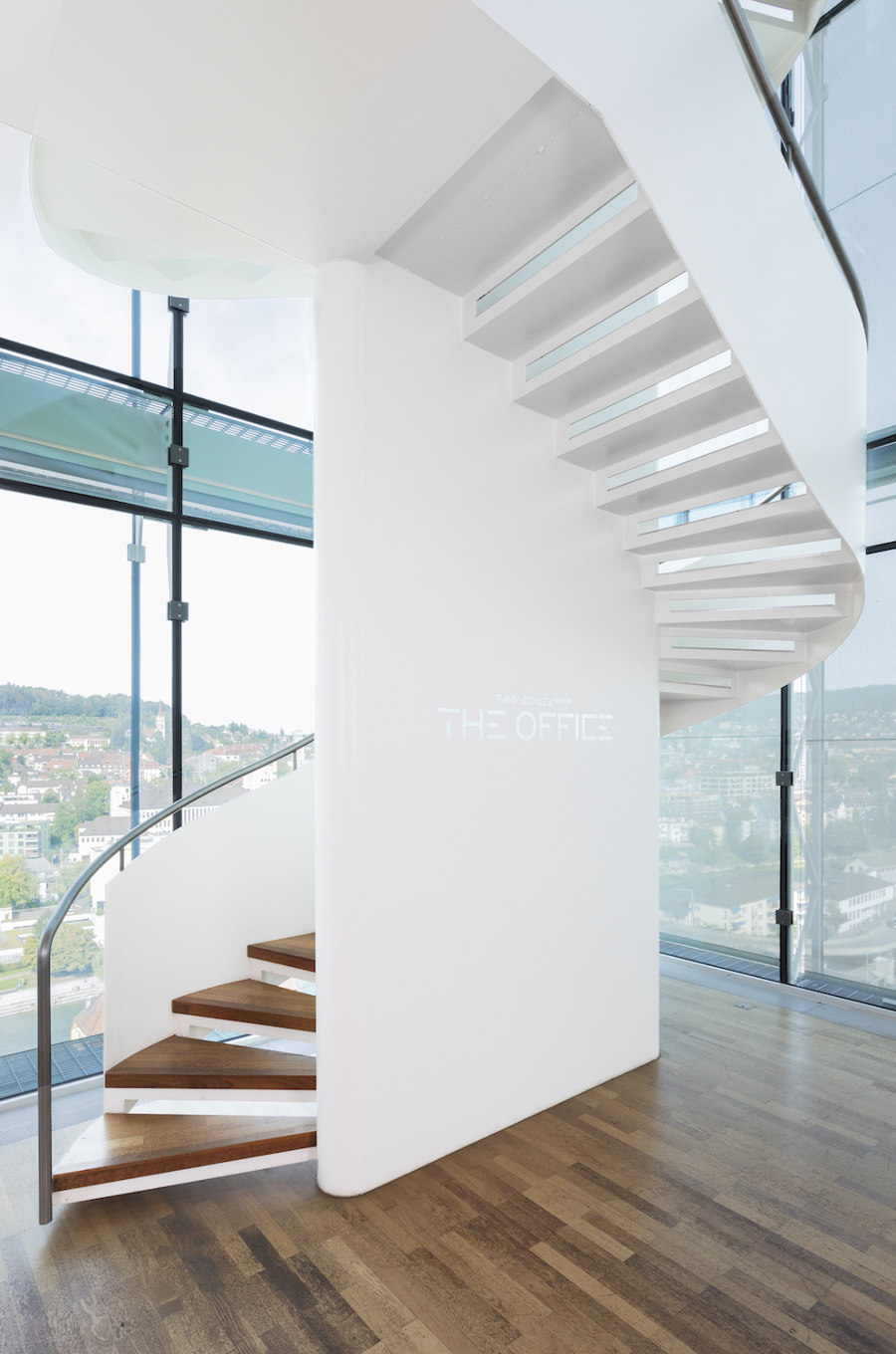
The works on display at 'The Office' ranged from ready-made and playful to technical and minimalist objects and furniture to reveal visions and processes of exploration. Photos: Kairos Studio & Oliver Kummerli
×The Office: Raw Senses
Swiss collective Raw Senses, established ‘to promote and uphold new design visions’ by showing out in temporary exhibition spaces, set up shop during ZDW on the 13th floor of a vacant office building in the west of the city with a literally named show, ‘The Office’. Contemporary creative practice, with an emphasis on experimentation, interdisciplinarity and collaboration, was explored in the work of almost two dozen architects and designers, whose furniture and other objects had been curated specifically with the idea of the open-plan spatial typology in mind. The organisers managed to pull off a neat aggregation of intriguing prototypes, gallery pieces and custom furniture in an exhibition that, in toto, was greater than the sum of its parts.
– – –
'The two-legged chair' investigated language and reason, object and science to solve the dilemma of how something can emerge from nothing. Photos: Galerie Mark Müller
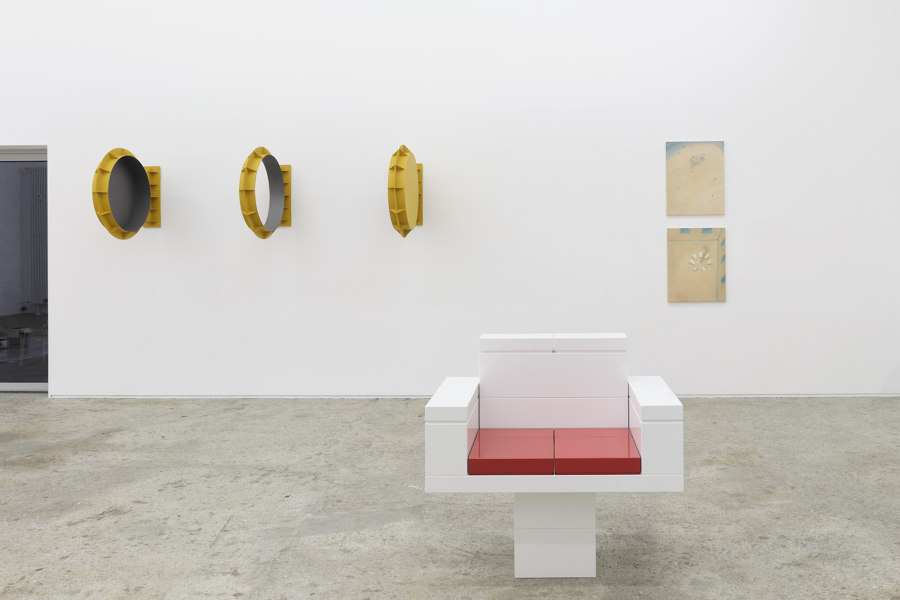
'The two-legged chair' investigated language and reason, object and science to solve the dilemma of how something can emerge from nothing. Photos: Galerie Mark Müller
×The Two-Legged Chair (Der Zweibeinige Stuhl)
And last but not least (and not officially part of ZDW, but worth a mention) was a truly interdisciplinary show called ‘The Two-Legged Chair’ at Galerie Mark Müller, which investigated, via the work of architects, designers, graphic designers and others, the notion of transcending the logic of function – as its name would suggest. Delivered via a series of installations with a pronounced haptic quality, the total effect was a form of landscape with a pronounced haptic effect. Compelling stuff.
– – –
© Architonic
Head to the Architonic Magazine for more insights on the latest products, trends and practices in architecture and design.

